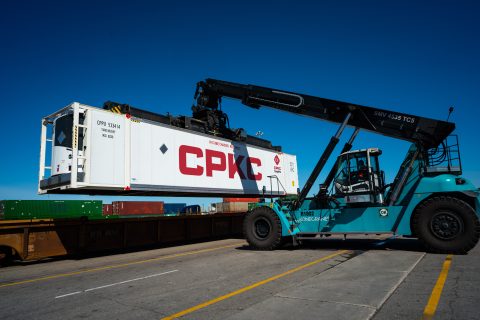Antwerp-Duisburg to establish rail ‘rolling pipeline’ for hydrogen

The port of Antwerp-Bruges and duisport sealed a significant partnership to boost their inland and rail connections. The partnership’s particulars foresee intense cooperation between the two ports for hydrogen distribution. The two partners want to establish a ‘rolling pipeline’ where rail will be the dedicated mode to transport the green fuel.
Do you want to read the full article?
Thank you for visiting RailFreight.com. Become a member of RailFreight Premium and get full access to all our premium content.
Are you already a member?
Having problems logging in? Call +31(0)10 280 1000 or send an email to customerdesk@promedia.nl.




